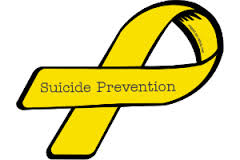Study Reveals Veteran Suicide Risk Highest in the First Year Home

By Debbie Gregory.
A new study may open doors to more effective treatment for veterans as they move from active-duty to life after the military, especially in light of the fact that Veterans may be more likely to commit suicide during the first year after they leave the military than after more time passes.
A new study at the Naval Postgraduate School in Monterey, California, lead by study author Yu-Chu Shen, revealed that compared to those on active duty in the military, veterans out of the service for up to three months were 2.5 times more likely to commit suicide. Veterans who had left the service from three to 12 months earlier had almost triple the suicide odds of current members of the military.
The study didn’t examine why the suicide risk was lower during deployment than afterwards. But it’s possible service members benefited from the positive psychological impact of belonging to a group with a shared mission during deployment, Shen said, then had more time to contemplate any negative feelings about their experiences when they were no longer on the mission.
“Family members and community can be proactive to reach out to veterans if they recently experienced stressful events – not just limited to the stressful events we can capture in the data such as divorce or separation from the military,” said Shen.
Overall, there were 4,492 suicides in the study population.
In the Lancet Psychiatry, researchers reported that the strongest predictors of suicide were current or past diagnoses of self-inflicted injuries, major depression, bipolar disorder, substance abuse or other mental health conditions.
Compared with service members who were never deployed, those who were currently deployed had a 50 percent lower risk of suicide, the study found.
However, in the first quarter following deployment, service members had a 50 percent higher risk of suicide than their peers who didn’t experience deployment.
The study doctors and researchers hope to lower the biggest barrier to veterans receiving the care they need when they get home, and that’s the stigma surrounding asking for help in the first place.
Military Connection salutes and proudly serves veterans and service members in the Army, Navy, Air Force, Marines, Coast Guard, Guard and Reserve, and their families.

















